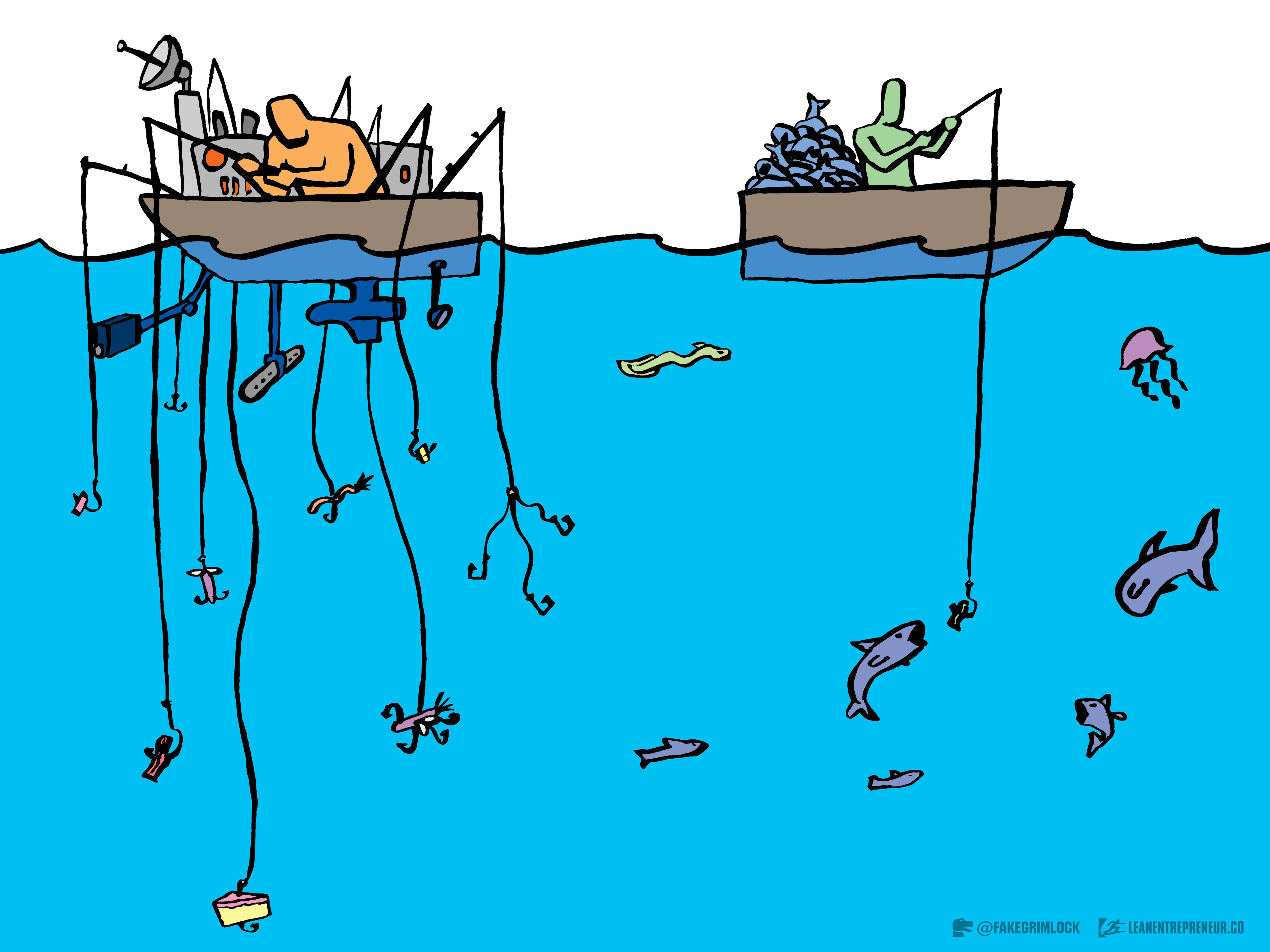Na sexta-feira passada, a trabalhar com uma empresa de calçado, comentei que apreciei a análise do contexto interno e externo que fizeram (requisito da ISO 9001). Em vez do habitual extenso rosário de banalidades concentraram-se em poucos tópicos, mas bons.
Depois do elogio disse algo como: Conhece aquela frase, no longo prazo estamos todos mortos?
Talvez ainda não seja um problema para a empresa agora, mas de onde virão os trabalhadores que vão operar esta fábrica daqui a 10 anos?
Anuíram com a cabeça, falaram na falta de subcontratados, falaram na remota possibilidade de importação de gáspeas da Índia ou do Brasil.
Este é um tema que vagueia pela minha mente há algum tempo:
- Por que é que um jovem no futuro há-de querer ir trabalhar para uma fábrica de sapatos?
- A pressão do salário mínimo vai ser cada vez maior
- Qual a rentabilidade que é possível retirar do negócio dos sapatos?
- Como competir pelos futuros trabalhadores?
Claro que também convém não esquecer as
chapadas que se podem apanhar. Se lerem este link pensem no que se esconde de "esquisito" nas Odemiras de Portugal.
Há uma técnica de busca de soluções chamada programação linear, onde diferentes condicionantes são representadas por rectas que vão limitando o campo de escolha (cada recta representa uma limitação diferente):
Uma empresa de calçado para atrair um jovem tem de considerar:
- o aumento do salário mínimo
- a falta de gente para trabalhar (por exemplo, na semana passada numa empresa cheia de trabalho contaram-me que quatro, sim quatro trabalhadores tinham-se despedido para ir trabalhar para a Suiça)
- a falta de atracção por trabalhar numa fábrica para um jovem, ainda para mais agora que é obrigado a estudar até ao 12º ano
- a crescente competição de concorrentes em países mais baratos e também próximos do centro da Europa (recordar a Turquia e a Albânia, por exemplo)
Algo que reduz a velocidade a que o problema para as empresas de calçado se manifesta é a incapacidade de Portugal competir com a
Europa de Leste na atracção de empresas de produtividade elevada. Se não fosse esse travão, as empresas de calçado portuguesas estariam perante o mesmo problema que as empresas de calçado alemãs nos anos 60 e 70, obrigadas a fechar ou a deslocalizar-se para um Portugal qualquer por ficarem incapazes de pagar os salários que a concorrência de outros sectores mais produtivos conseguia pagar.
"Há uma série de empresas a precisar de contratar, para dar resposta aos clientes, mas sem sucesso. Luís Onofre, presidente da associação do calçado, pede ao governo que crie apoios à deslocalização, que fomente a transferência de famílias para distritos onde haja falta de mão-de-obra. [Moi ici: Portanto, o problema é para ser minimizado pelos contribuintes]
...
Por exemplo, sugerimos também que pudéssemos ter uma mão solidária com os refugiados, dando-lhes emprego nas nossas fábricas, mediante algum controlo obviamente" [
Moi ici: Truque de Odemira ou pagar o salário mínimo? Se for o truque, é uma race to the bottom, se for o salário mínimo, só resulta enquanto o negócio gerar rendimento para o pagar. Também podem trazer a Ásia para a Europa à custas das bofetadas lá de cima, veja o exemplo italiano]
...
[
Moi ici: Agora reparem na argumentação que se segue, faz-me recuar aos delírios de argumentação de um presidente da câmara de Guimarães em 2008] "a indústria só consegue ser atrativa através do salário, mas compete com países onde o custo salarial é metade, ou menos".
Para o empresário, compete ao governo encontrar uma solução, mas sempre vai dizendo que "
tem que haver uma forma de subsidiar os setores tradicionais, que empregam muita gente, já que ajudam a diminuir os níveis de desemprego do país"". [
Moi ici: Oh boy!!! Portanto o problema é do governo ... Reparar, o artigo começa com a dinâmica de crescimento, com a dinâmica de encomendas e retoma e, mesmo assim, é preciso subsidiar. O mindset é que o problema não é de cada empresário, ou das associações do sector ... é do governo. E depois o remate final à presidente da câmara de Guimarães em 2008: Por que o desemprego é alto é preciso subsidiar a criação de emprego em empresas que querem empregar. BTW, oficialmente o desemprego está baixo!]
Este artigo exemplifica bem o tema que abordei várias vezes esta semana aqui no blogue. Por exemplo em ""Como serão as conversas que decorrem nas empresas?"":
Estamos com conversas de empresas no quadrante de elevada competitividade, mas baixa produtividade.
A cultura portuguesa é uma cultura que evita o choque, que prefere esconder as verdades nuas e cruas, que assume a esperança como a principal estratégia. Trabalhar no quadrante de elevada competitividade, mas baixa produtividade é trabalhar sem autonomia estratégica, as empresas sobrevivem mais ou menos tempo em função da velocidade de aumento do salário mínimo, em função da velocidade da hemorragia demográfica, e da competição de outros sectores.
Se a nossa economia estivesse saudável e fosse capaz de atrair empresas produtivas, o destino das empresas de calçado no quadrante de elevada competitividade, mas baixa produtividade, seria o inevitável encerramento a curto prazo. As conversas dentro destas empresas devia ser sobre o que podem fazer para contrariar o destino normal e saltar para o quadrante da elevada competitividade e elevada produtividade.




















%2006.21.jpeg)












